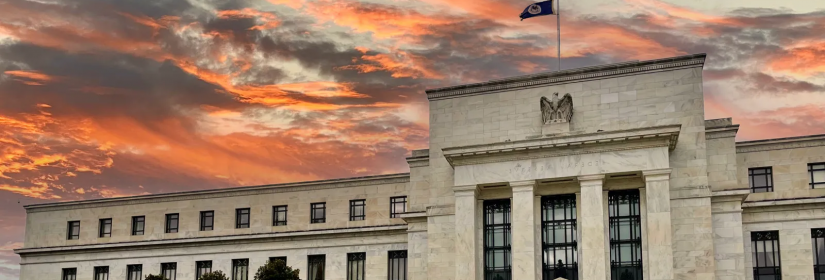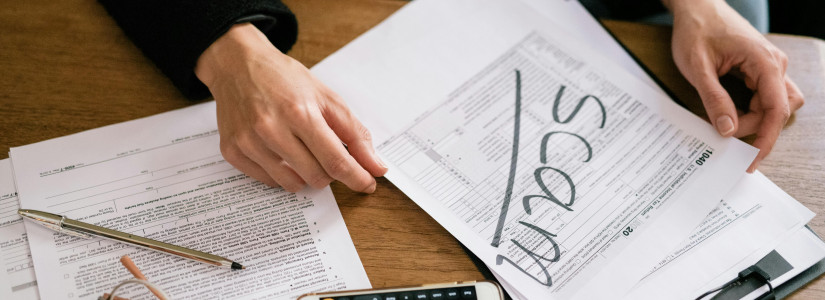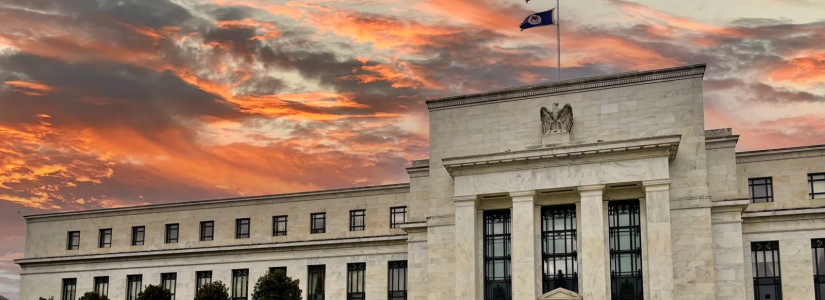The Fed Just Lowered Rates! Here’s How You Can Benefit from It

After a long period of high interest rates aimed at controlling inflation, the Federal Reserve has announced a much-anticipated decision: they are lowering interest rates.
This change will impact everything from credit cards to mortgages, and consumers need to understand how it could affect their finances.
Here's a breakdown of what this rate drop means for you and how you can take advantage of it.
Why Are Rates Being Lowered?
The Federal Reserve’s decision to lower interest rates comes as inflation has shown signs of easing and the economy has stabilized.
After multiple rate hikes that started in 2022 to combat rising prices, the Fed is now shifting its focus to encourage borrowing and spending as inflation cools down.
This rate cut is part of a larger effort to support economic growth while keeping inflation in check.
How It Impacts You: Loans, Mortgages, and Credit Cards
A lower interest rate environment can be good news for anyone carrying debt or considering taking out a loan.
Here’s how it may affect different areas of your financial life:
1. Credit Cards
Interest rates on credit cards are directly tied to the Federal Reserve's benchmark rate.
With the rate cut, you could see lower APRs (annual percentage rates) on your existing credit card balances and any new cards you apply for.
This means you’ll pay less in interest if you carry a balance, making it easier to manage or pay off debt.
Read: Scoping Out Your Next Credit Card: Top Picks for 2024
2. Mortgages
For prospective homebuyers, the rate drop could make a big difference.
Mortgage rates, especially on variable-rate loans, often follow Fed decisions closely.
If you’ve been waiting for the right time to buy or refinance your home, this rate cut could lead to lower monthly payments.
Related: U.S. Mortgage Rates Reach New Lows, Creating a Prime Opportunity for Homebuyers
However, keep in mind that fixed-rate mortgages might not adjust as quickly.
3. Auto Loans and Personal Loans
With lower interest rates, financing a car or taking out a personal loan becomes cheaper.
This could be a great time to shop around for better loan deals, especially if you’re looking to make a major purchase or consolidate debt.
Don't miss: Insights Heading Into 2024: Navigating Student Loans, Auto Financing, and Credit Card Trends
Time to Reevaluate Your Savings Strategy
While lower rates are generally good for borrowers, they can be a mixed bag for savers.
High-yield savings accounts and certificates of deposit (CDs) that offered attractive returns during the rate hike period may see lower yields in the coming months.
If you’re relying on interest income, you may want to reassess where you’re parking your savings.
- Savings Accounts: Interest rates on savings accounts will likely drop, meaning you’ll earn less on your deposits.
- Certificates of Deposit (CDs): If you’re considering locking in a CD, now might be the time before rates fall further.
What Consumers Should Do Next
Here’s how you can make the most of the Federal Reserve’s decision to lower rates:
-
Refinance High-Interest Debt
If you have existing debt—like a mortgage, auto loan, or credit card balance—now could be a smart time to refinance at a lower rate. This can reduce your monthly payments and help you save on interest over time. -
Look for Lower Loan Rates
Whether you’re in the market for a home, car, or personal loan, lower rates mean borrowing could be more affordable. Compare lenders and lock in favorable terms while rates are down. -
Keep an Eye on Savings Options
As interest rates fall, the returns on savings accounts and CDs may decline too. It’s worth exploring other investment options, such as bonds or diversified portfolios, that can offer better returns in a low-rate environment. -
Adjust Your Budget
With reduced borrowing costs, now might be the time to reassess your financial goals. Lower interest rates could free up some of your budget, allowing you to save more, pay down debt, or invest in long-term goals.
The Bottom Line
The Federal Reserve’s rate cut signals a shift in economic policy that can bring both opportunities and challenges for consumers.
Whether you’re looking to borrow, save, or invest, understanding how this change impacts your finances will help you make informed decisions.
Keep a close eye on how rates evolve and take proactive steps to optimize your financial position.
Previous article: Why Home Prices Almost Never Go Down: Here's What Keeps Them So Resilient
-
At InflationRelief.net, we're committed to helping you navigate life’s financial challenges.
From breaking down health myths to optimizing your retirement savings, we offer fresh, practical content every day.
Keep exploring for tips and insights to help you live your best life!
[The photo used is The Federal Reserve building in Washington, DC. Douglas Rissing via Getty Images]
Related Articles
Stay ahead of the curve











